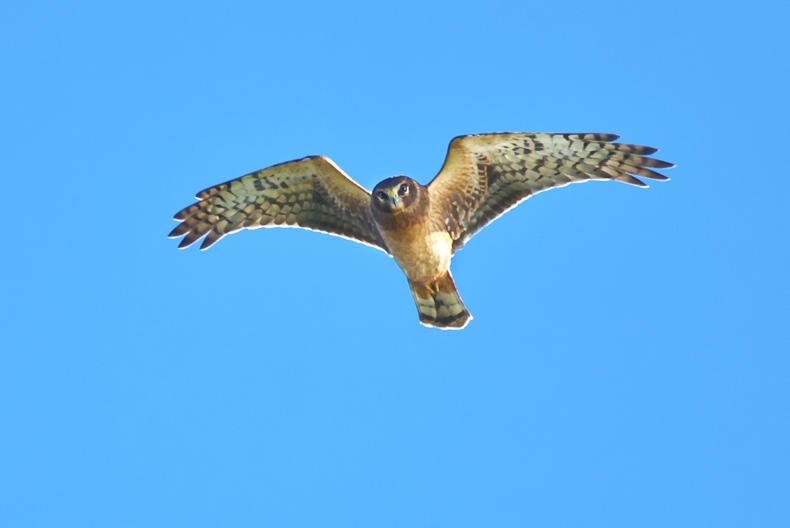
LOYALTY CODE:
The paper code cannot be redeemed when browsing in private/incognito mode. Please go to a normal browser window and enter the code there

LOYALTY CODE:
The paper code cannot be redeemed when browsing in private/incognito mode. Please go to a normal browser window and enter the code there
This content is copyright protected!
However, if you would like to share the information in this article, you may use the headline, summary and link below:
Title: New hen harrier scheme targets opening date this year
The Department of Agriculture has formally appointed the consortium selected to operate the new €25m agri-environmental scheme in designated hen harrier habitats.
https://www.farmersjournal.ie/new-hen-harrier-scheme-targets-opening-date-this-year-272516

ENTER YOUR LOYALTY CODE:
The reader loyalty code gives you full access to the site from when you enter it until the following Wednesday at 9pm. Find your unique code on the back page of Irish Country Living every week.

CODE ACCEPTED

You have full access to farmersjournal.ie on this browser until 9pm next Wednesday. Thank you for buying the paper and using the code.

CODE NOT VALID
Please try again or contact us.
For assistance, call 01 4199525
or email subs@farmersjournal.ie
Sign in

Incorrect details
Please try again or reset password
If would like to speak to a member of
our team, please call us on 01-4199525
Reset
password
Please enter your email address and we
will send you a link to reset your password

If would like to speak to a member of
our team, please call us on 01-4199525
Link sent to
your email
address
![]()
We have sent an email to your address.
Please click on the link in this email to reset
your password. If you can't find it in your inbox,
please check your spam folder. If you can't
find the email, please call us on 01-4199525.
![]()
Email address
not recognised
There is no subscription associated with this email
address. To read our subscriber-only content.
please subscribe or use the reader loyalty code.
If would like to speak to a member of
our team, please call us on 01-4199525
 This is a subscriber-only article
This is a subscriber-only article
Update Success !

The Department of Agriculture announced this Tuesday that it had signed the management contract with the Hen Harrier Project Ltd after a tender process that concluded last month.
The consortium is headed by Co Galway agricultural adviser Fergal Monaghan and brings together the conservation organisation Golden Eagle Trust and Brendan O’Gorman Accountants. The consortium can be paid up to €3.5m to manage the scheme over the next six years, according to tender documents.
Monaghan told the Irish Farmers Journal that after a few weeks to establish the team, the project would enter consultations with farming organisations and individual farmers to design the scheme.
I hope to have farmers in the scheme in 2017
Applications are expected to open immediately afterwards. “I hope to have some farmers in the scheme in 2017,” said Monaghan, adding that applications would then remain open into 2018. “We aim to develop additional income options to sustain communities in an uplands farming landscape,” he said.
This is going to be a locally led agri-environmental scheme (LLAES) funded by the European Innovation Partnership, which Monaghan said allows more flexibility than traditional CAP schemes. For example, it does not have to operate on a calendar year basis. There is no obligation either to make the scheme prescription-based, with a menu of actions to choose from and comply with as is the case with GLAS. The project's manager also said that it would be "dynamic" and could evolve over time.
No duplication with GLAS
One constraint Monaghan mentioned is that the hen harrier scheme cannot duplicate existing measures. “We cannot pay farmers twice for actions already taken under GLAS,” he offered as an example.
The Department of Agriculture stated that the scheme was aimed at “creating sustainable farming systems that work for both the farmers and the bird, and deliver real socio-economic benefits to the areas concerned”.
Farmers in hen harrier areas want to see the benefits of this measure working immediately
IFA hill farming chair Pat Dunne said the hen harrier should address the restrictions that designations have on farmers’ land and income. “Farmers in hen harrier areas want to see the benefits of this measure working immediately with payments being made without delay once plans have been drawn up,” Dunne added.
Another €10m earmarked for a similar scheme in fresh water pearl mussel conservation areas is still awaiting the appointment of a management team.
LLAES: hen harrier initiatives
SHARING OPTIONS: